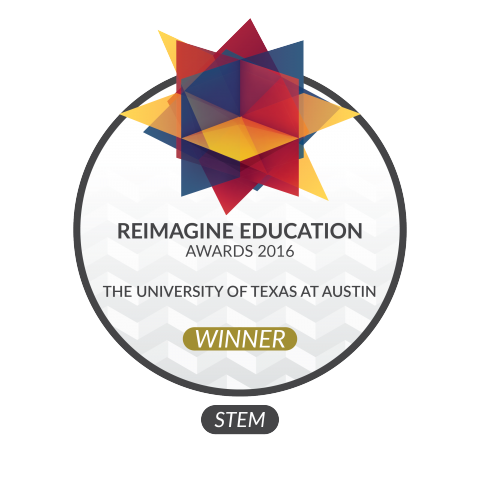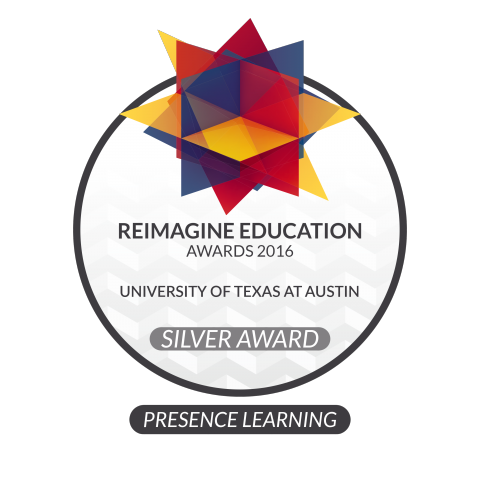The Freshman Research Initiative (FRI) program works as a model for effective science education. At most research universities, scientific research and teaching happen independently of one another. Primary investigators may work with post-doctoral researchers, graduate research assistants and undergraduate research assistants in their labs. And separately, professors may work with graduate student teaching assistants and undergraduate students in teaching labs.
In FRI, the lab and classroom are seamlessly integrated...

FRI VOCABULARY
FRI RESEARCH CURRICULUM OVERVIEW
The lower-division FRI lab courses provide undergraduate students authentic research experiences, including in-depth participation in various scientific practices and opportunities that lead to invaluable 21st Century skills (for example, critical thinking, communication, collaboration, creativity, information literacy, leadership, etc.). To create experiential learning curriculum emphasizing scientific thinking and scholarship, FRI Research Educators (REs) curate an evolving, diversified research agenda so that students see that their work is relevant outside the scope of the course. FRI lab courses serve as a replacement for fundamental lower-division introductory lab courses in several disciplines, and are also a pivotal gateway to numerous, multi-semester academic and professional opportunities for CNS students, especially effective for increasing the participation of under-represented minority students in STEM.
In the second semester of their year-long FRI experience, many students receive upper-division research credit paired with a core curriculum Writing flag, which reflects the true nature of academic research and the importance of written communication and dissemination of results. Well beyond enrollment in the FRI courses, many students extend their STEM experiences in the FRI as peer teachers and researchers, often for the remainder of their time as undergraduates. This establishes nurturing, multi-tiered teaching and learning communities in the FRI where students of all stages can continue to develop academically and professionally from longitudinal, holistic mentoring.
While the FRI model of research-based lab course curriculum is very demanding, it gets significant results: The FRI was a recipient of the Gold Award for STEM education in the worldwide Reimagine Education competition, FRI boosts graduation and STEM retention rates, and boosts student earning potential post-graduation.
 |
 |















